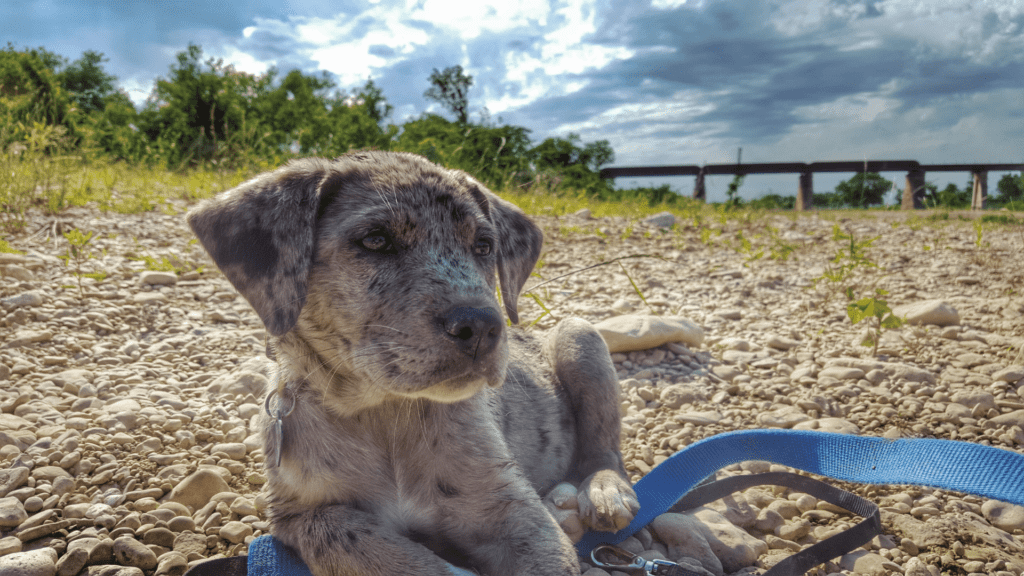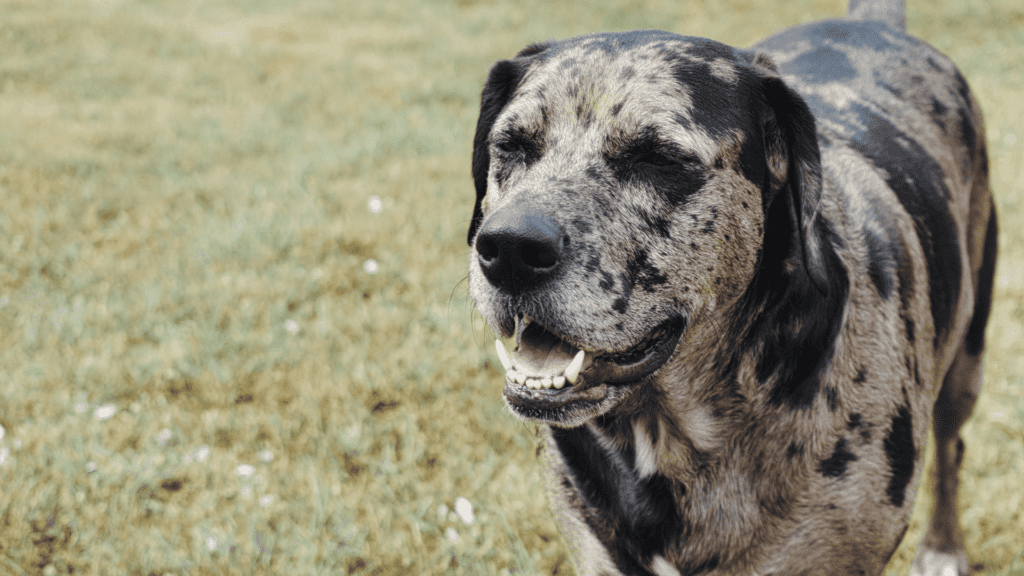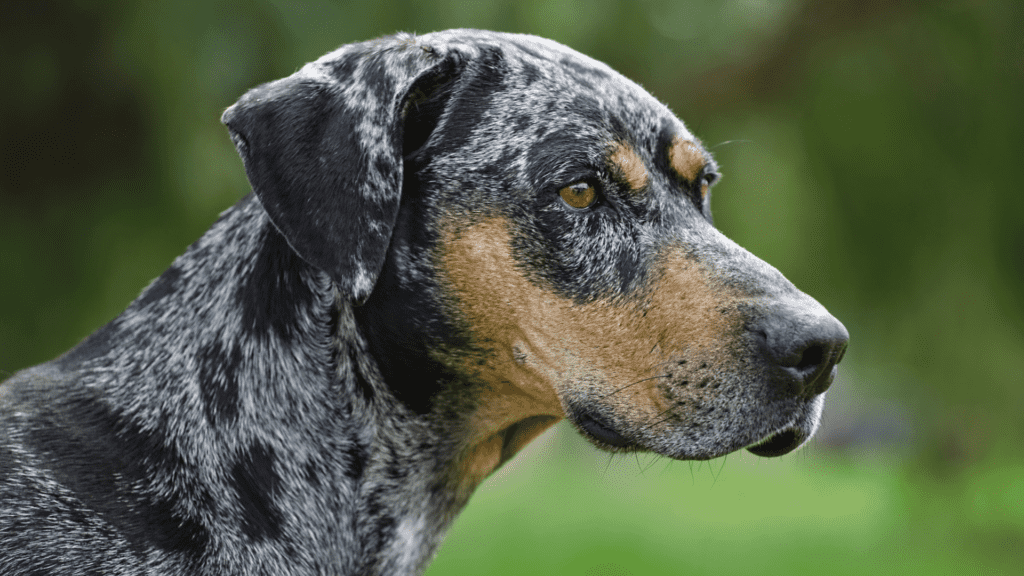You might be wondering, what is the lifespan of Catahoula? Catahoula Leopard Dogs have an average lifespan of 10-14 years. Some Catahoula Leopard Dogs live 4 more years than what is expected.
If you own or are thinking of having a Catahoula Leopard Dog, understanding its lifespan is very important when looking after these dogs.
We cannot say for sure when it comes to the life of a Catahoula Leopard Dog, the same as any other breed.
What Are the Factors Affecting the Lifespan of a Catahoula Leopard?
Factors that affect the longevity of a Catahoula Leopard Dog include size, breed, and the general health of your pet.

Size and Breed
Small dog breeds, in particular, have a lifespan ranging from 12 to 14 years.
The most common breeds of small dogs are French Bulldogs, Pocket Beagles, Poodles, Yorkshire Terriers, etc.
For medium-sized dogs, like the Catahoula Leopard, Labrador Retriever, Golden Retriever, etc. Their normal lifespan is between 10 to 13 years.
Lastly, for large dogs, such as Rottweilers, German Shepherds, German Shorthaired Pointers, etc., the usual lifespan is between 9 to 12 years.
Parasites
Parasites also play a large role when it comes to the lifespan of your Catahoula Leopard Dog. All kinds of parasitic worms and bugs can invade your dog’s body, inside and out.
These parasites can get into your Catahoula Leopard Dog’s system in many ways, including:
- Drinking unclean water
- Walking on contaminated soil
- Being bitten by an infected mosquito
- Fleas, ticks, and ear mites infesting skin and ears
Parasites can cause pain, discomfort, and even death to your Catahoula Leopard Dog. Make sure to test and check your canine friend for these parasites regularly.
It’s also recommended to give them preventive medication as necessary.
What Diseases Affect the Lifespan of a Catahoula Leopard?
One important factor that affects the lifespan of your Catahoula Leopard Dogs is the diseases that they commonly acquire throughout their lifetime.
Catahoula Leopards are rather vulnerable to bacterial and viral infections, such as distemper, parvo, and rabies. Luckily, most of these infections are preventable through vaccination.
Aside from these common diseases, Catahoula Leopard Dogs are also vulnerable to other diseases listed below:
1. Obesity
Catahoula Leopard Dogs’ obesity can be a significant health problem. It may cause or worsen joint problems, digestive and metabolic disorders, back pain, and heart diseases.
It’s understandable how tempting it is to reward your canine friend when they look at you with those puppy dog eyes. However, giving them treats is not always the reward you should award them with.
Hug your Catahoula Leopard Dogs, brush their fur or teeth, play with them, or perhaps take a walk. With these alternatives, you can prevent your buddy’s obesity and benefit their overall health as well.
2. Diabetes
One common disease in dogs is diabetes mellitus. Although this can affect any breed, Catahoula Leopard Dogs have an above-average incidence.
Dogs affected by diabetes are unable to regulate the metabolism of sugars. In this case, they would require daily injections of insulin.
Diabetes is a highly serious condition so it’s important to diagnose and treat it as early as possible.
An increase in eating, drinking, and urination, along with weight loss are some symptoms that your Catahoula Leopard may have diabetes. If your dog shows signs, it’s best to have your Catahoula Leopard checked by a veterinarian.
3. Eye Problems
Remember that your dog’s properly functional eyes have a great impact on its quality of life. Catahoula Leopard Dogs can inherit or develop a number of different eye conditions.
Some of these eye conditions can be tremendously painful for your dog and even cause blindness if not treated immediately.

4. Deafness
Deafness has been a notable hereditary condition in Catahoula Leopard Dog bloodlines. If your Catahoula Leopard has healthy ears and you’re being ignored, a thorough hearing workup may be needed.
If you suspect that your pal isn’t hearing well, better schedule an appointment with your veterinarian.
5. Neuter or Spay
For Catahoula Leopard Dogs, spaying or neutering is one of the best things you can do for them.
Spaying is surgically removing ovaries and usually the uterus in female Catahoula Leopard Dogs. While Neutering is surgically removing the testicles in males.
Performing these surgeries decreases the likelihood of your Catahoula Leopard Dogs getting certain types of cancers.
6. Prognathism
Prognathism, otherwise known as an underbite, affects Catahoula Leopard Dogs more than the other breed.
Suppose your Catahoula Leopard has prognathism, meaning, the lower jaw sticks out further than the upper jaw.
Treatment for prognathism isn’t required in most cases. However, if the abnormally positioned teeth are digging into the mouth of your Catahoula Leopard, orthodontic work or extraction may be needed.
7. Thyroid Problems
Catahoula Leopards are also prone to a condition called hypothyroidism. It happens when the body doesn’t make enough thyroid hormone.
Some noticeable signs are dry skin and coat, weight gain, hair loss, and susceptibility to other skin diseases. Aggression, fearfulness, and other behavioral changes also need to be monitored.
If you noticed these symptoms, it’s best to have your Catahoula Leopard undergo a blood screening to diagnose the cause.
The treatment is usually simple for Hypothyroidism. They typically just need replacement hormones given in the form of a pill.

8. Cancer
For older dogs, cancer is the leading cause of death. Catahoula Leopard Dogs are more prone to cancer in their golden years.
Many cancers can be cured by surgically removing them and some are treated with chemotherapy.
Early detection is critical when it comes to cancer. Make sure to have your Catahoula Leopard Dog checked up at least once a year.
Wrapping Up
How long do Catahoula Leopard Dogs live? That’s one of the hardest questions to answer.
We all know that our canine friends can’t stay with us forever so it’s important to understand their average life expectancy.
It’s also important to know how to properly care for them so they can live healthier and longer.

Calvin is the co-founder and one of the main contributors to dogtemperament.com. He has been an avid dog lover all his life. He enjoys researching and sharing great ideas on how you can avoid common pitfalls of dog ownership and build the most loving and enjoyable relationship with your dog.